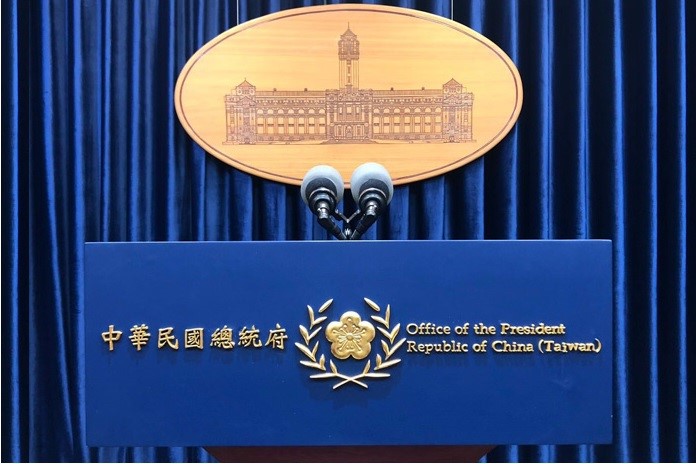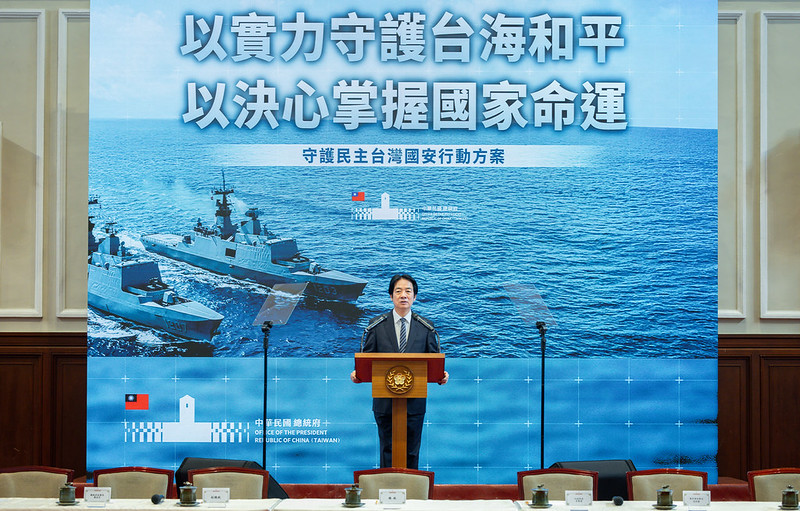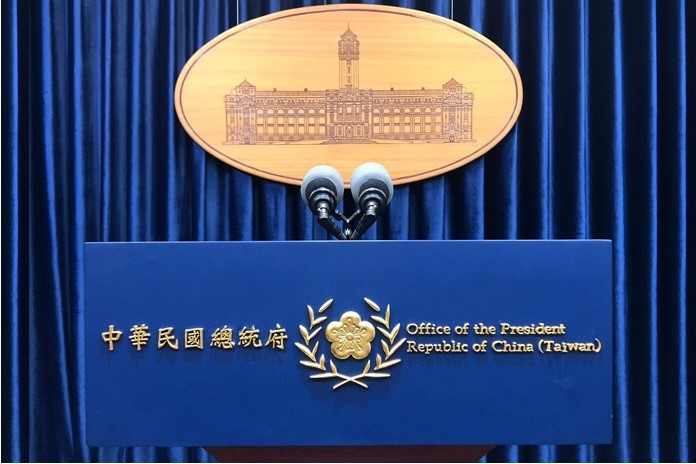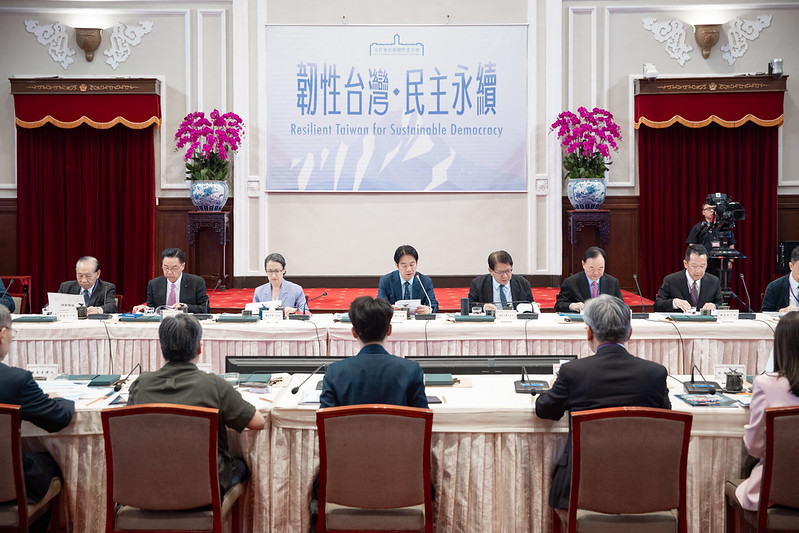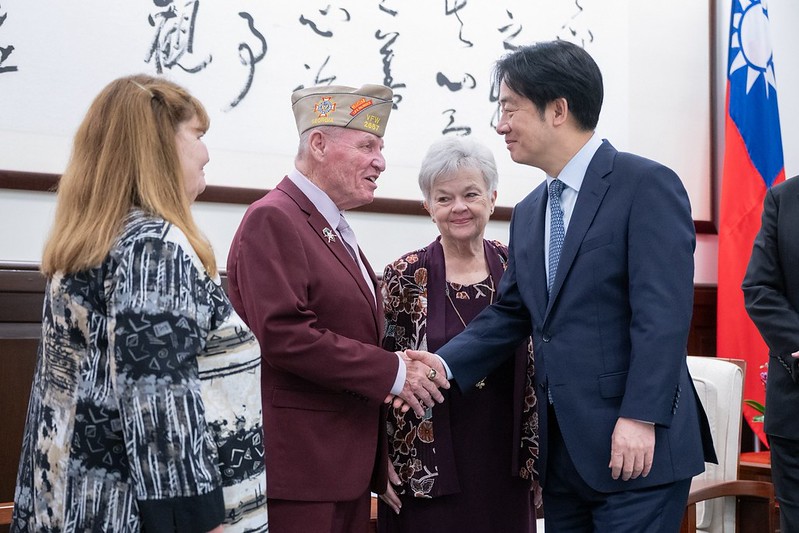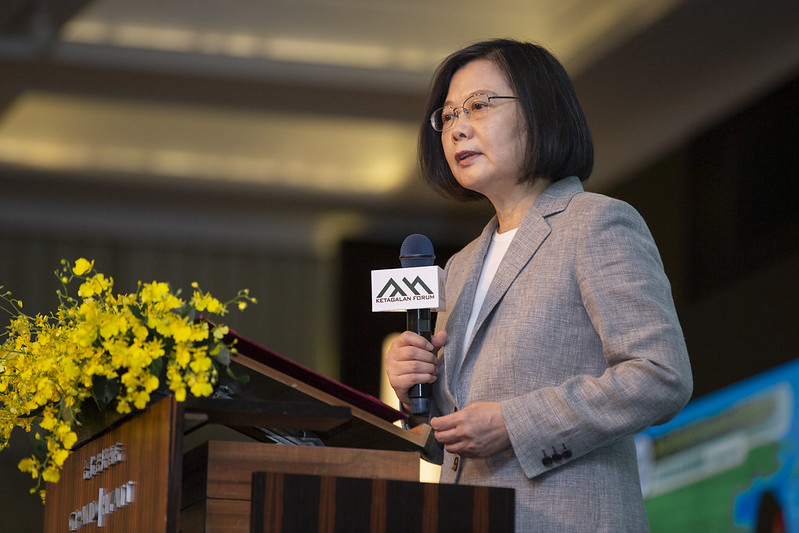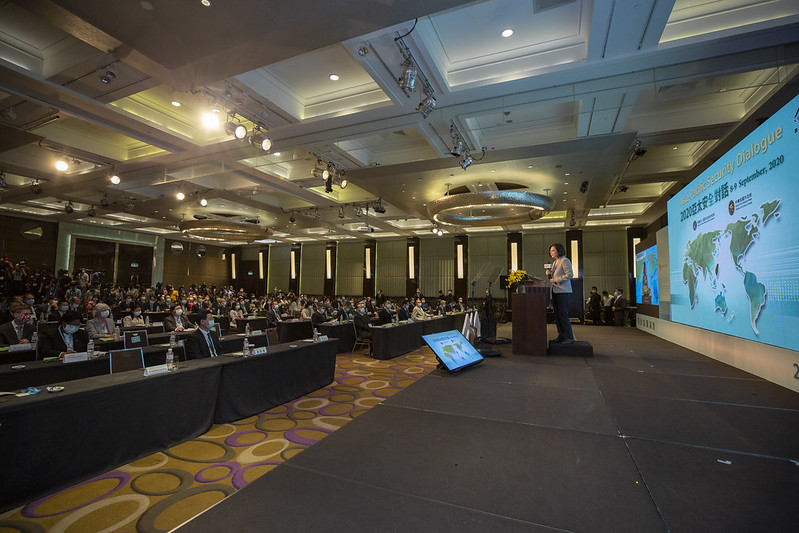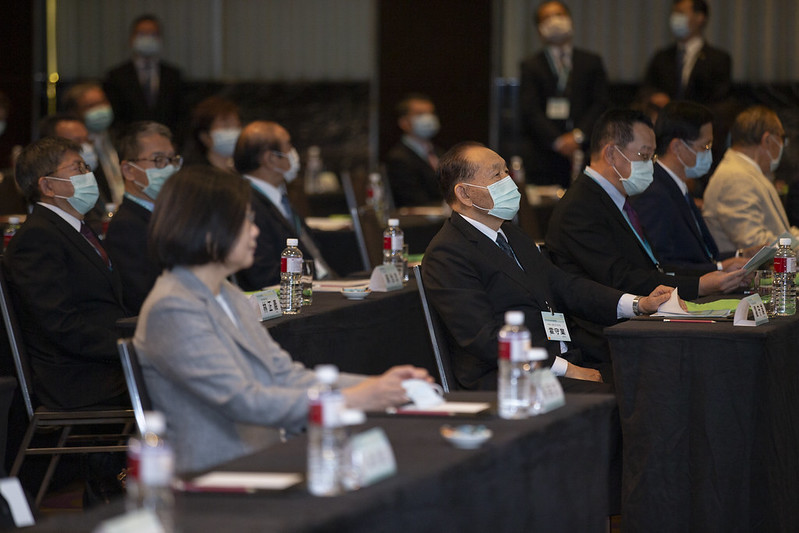News & activities
 News releases
News releases
While addressing the Ketagalan Forum-2020 Asia-Pacific Security Dialogue on the morning of September 8, President Tsai Ing-wen emphasized that security and economic development are inextricably linked. She stated that by coming together to build a free, open and prosperous region, like-minded countries can continue to drive future development.
Following is a transcript of President Tsai's remarks, which she delivered in English:
I would like to begin with a very warm welcome to all of today's participants from around the world.
Through modern technology, and our determination to overcome time differences, we have gathered here today to discuss key issues that affect us all.
I hope that after the pandemic has receded, you all have a chance to visit Taiwan, and experience our vibrant democracy for yourselves.
While science and technology have made today's event possible, they have their limitations. 2020 will be remembered as the year that humankind was presented with the greatest challenge of the 21st century. That is the COVID-19 pandemic.
As of this week, there are over 27 million confirmed cases worldwide, and about 890 thousand deaths. Countries all over the world are now dealing with the second and third waves of infection, while medical experts are working around the clock to develop a vaccine. The challenge is daunting but no one is yielding. Certainly not us in Taiwan.
Taiwan's efforts to combat COVID-19 are a good story to tell. Beginning in January this year, my government was proactive, decisive, and transparent in combating the virus.
Taiwan's success story is a well-told one and I need not repeat it in detail here. But the most important lesson for us all is that, Taiwan was able to become one of the safest places in the world during this pandemic, and we made sure of this while maintaining our democratic principles and freedoms.
The effectiveness of our democratic governance in spite of the pandemic was made possible through the joint efforts of individual citizens, the business community, civil society and the government.
One well-known aspect of our response is the rapid expansion of face mask production through extensive public and private collaborations. Taiwan is now the second largest face mask producer in the world, making 20 million masks per day. This achievement has allowed our government to donate more than 51 million masks to more than 80 countries. Face masks embossed with "Made in Taiwan" can be seen from the White House to the streets of Europe, Japan and many other places around the world.
Taiwan's efforts do not stop here. We have research teams working with different partners in the United States and Europe to develop a vaccine. Our top research institute has developed a rapid diagnostic test that can detect the virus in just 15 minutes. We have also held numerous meetings to exchange knowledge and expertise regarding the prevention and control of Covid-19 with friends in the international community.
"Taiwan Can Help" was the motto for our efforts to support the global community in combatting the pandemic. It is because we truly believe that "helping ourselves enables us to help others;" and that "when we help ourselves, others will help us."
This is also an important belief to maintain, as we all face daunting security challenges in the Indo-Pacific region.
Taiwan stands at the forefront of defending democracy from authoritarian aggression. And our commitment to democracy and its values is unwavering.
As the president of Taiwan, I have worked to further accelerate the development of our asymmetrical capabilities to strengthen our national defense. Planning for substantive reforms on our military reserve and mobilization systems is also well underway.
Taiwan bears the ultimate responsibility for our own defense. My government has increased our defense budget in proportion to the military challenges we face. As Commander in Chief, it is my responsibility to ensure that our men and women in uniform have the equipment they need, and for the Taiwanese people to feel confident in our self-defense.
We have also procured necessary equipment from the United States, including new F-16Vs, as well as missiles and other additions to our asymmetrical capabilities. I am pleased that over the past four years, we have engaged in a regular process for arms sales, fulfilling our defense priorities.
At the same time, my government has been committed to enhancing our domestic production capabilities. We are engaged in new aircraft and naval vessel production, because we believe that a robust defense posture can be better supported by a more competitive defense industry. As a result, our T-5 Brave Eagle first took flight in June this year, and is one of the most advanced Fifth-Generation Advanced Jet Trainers in the world.
We are giving ourselves the tools to defend our home, our democracy and our region.
But no one country can accomplish the goals of maintaining regional peace, prosperity and security alone. They require far-reaching collaboration. This is where we need others' help. And this is where we can help each other.
The rapid militarization of the South China Sea, increasing and frequent grey-zone tactics in the Taiwan Strait and East China Sea, coercive diplomacy used against countries and corporations, just to name a few, are all destabilizing the Indo-Pacific region.
Furthermore, Hong Kong's recent past shows us that liberty and freedom can easily be lost, if our efforts to protect them are not coordinated and sustained.
It is time for like-minded countries, and democratic friends in the Indo-Pacific region and beyond, to discuss a framework to generate sustained and concerted efforts to maintain a strategic order that deters unilateral aggressive actions. We need a strategic order that encourages cooperation, transparency and problem-solving through dialogue, not threats of war. We need a strategy that avoids war, yet clearly conveys our resolve to protect our democracies.
If the pandemic has taught us anything at all, it is that transparency and good governance prevail and best serve our people.
The challenges we face during this era of Covid-19 go beyond public health and security. The pandemic has also severely disrupted national economies and international trade.
One of the most important and painful lessons we have learned is this: the global supply chains and trade mechanisms, we have come to heavily rely on, are highly fragile and are often subject to coercive measures by aggressive actors.
However, the current situation gives us an opportunity to reexamine and reorganize economic and trade cooperation, and most importantly, adapt to restructuring supply chains and re-enforce fair and non-coercive trade rules.
Last week, during the groundbreaking visit by the Czech Republic's Senate President to Taiwan, the American Institute in Taiwan (AIT) hosted the "Forum on Supply Chain Restructuring: Improving Resilience Amongst Like-Minded Partners". Participants included representatives from the EU, Japan, the Czech Republic, and Taiwan.
The discussion included the need for restructuring global supply chains to bring them closer to home, or locate them in like-minded economies. Most importantly, these global supply chains should also be secure and free from political coercion.
Taiwan and the United States also issued a joint declaration on 5G security. We agreed that we should all be responsible for evaluating 5G hardware and software suppliers and supply chains to promote secure 5G architecture.
Taiwan and the US will also help raise awareness about risks regarding 5G networks, and work with like-minded partners to develop appropriate standards, guidelines and best practices.
This symbolizes a new chapter in the collaboration between like-minded partners with shared values, and a new future for the rules-based order in the Indo-Pacific, and around the globe.
This alliance will safeguard the values we cherish most: freedom, safety, human rights and democracy.
Let me conclude by saying that time and again, we have confronted great challenges. And yet, we have always been able to weather these storms by believing in our values and working together. Only by doing so can we create a peaceful, prosperous and secure Indo-Pacific region.
Security and economic development cannot be separated. A lack of economic integration amongst like-minded countries would only drive us to seek short-term solutions with those who do not share our values and beliefs. Divided we fall. Together, we are more than the sum of our parts.
One day, the current pandemic will recede. But I sincerely believe that the solidarity we develop through our efforts to create a free, open and prosperous region will continue to be a force in the future.
20 officials and academics from the US, Japan, the UK, France, Poland, Vietnam, India, Australia, New Zealand, Canada and Mexico, including former US National Security Advisor H.R. McMaster, member of the Japanese House of Councillors Matsukawa Rui, member of the Japanese House of Representatives Makishima Karen, former US Assistant Secretary of State for East Asian and Pacific Affairs Daniel Russel, member of the Australian House of Representatives Andrew Laming, and president of the Polish Academy of Sciences Jerzy Duszyński, engaged in dialogue with Taiwanese political and economic scholars at the event.
